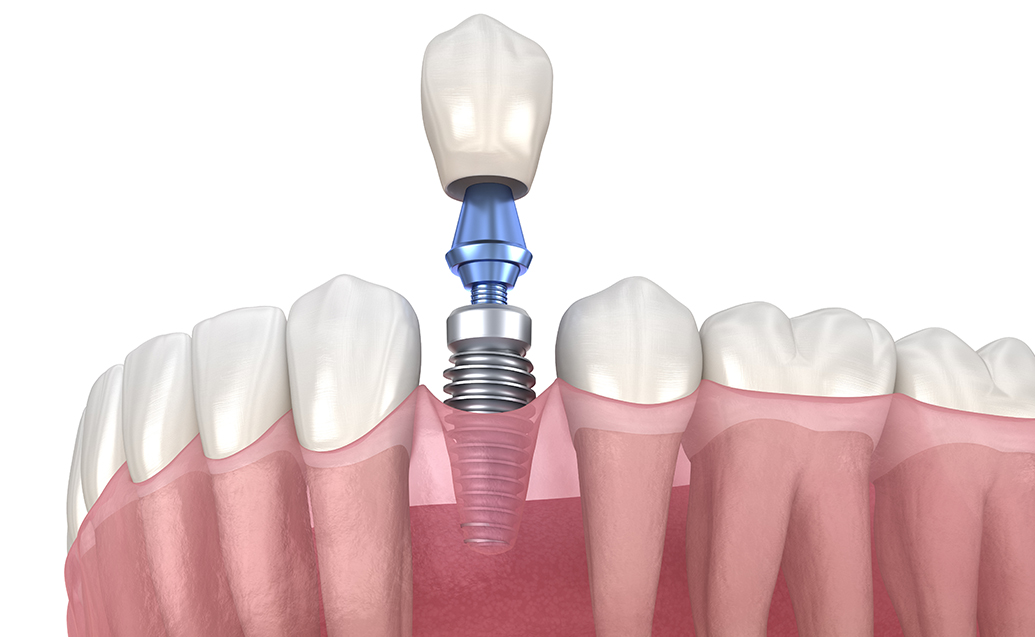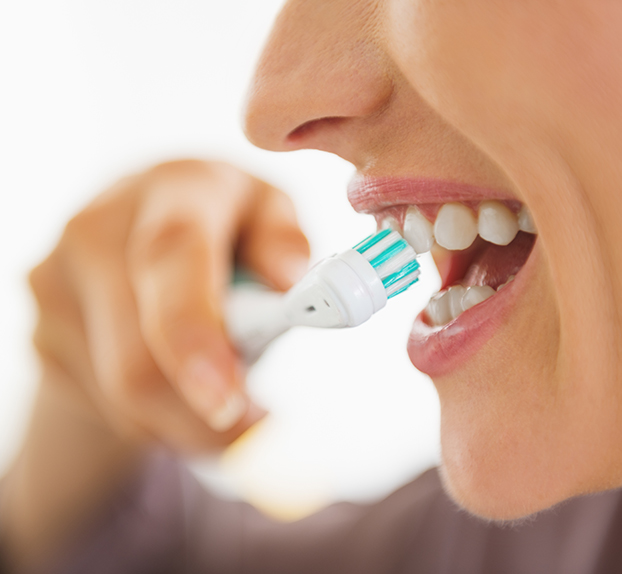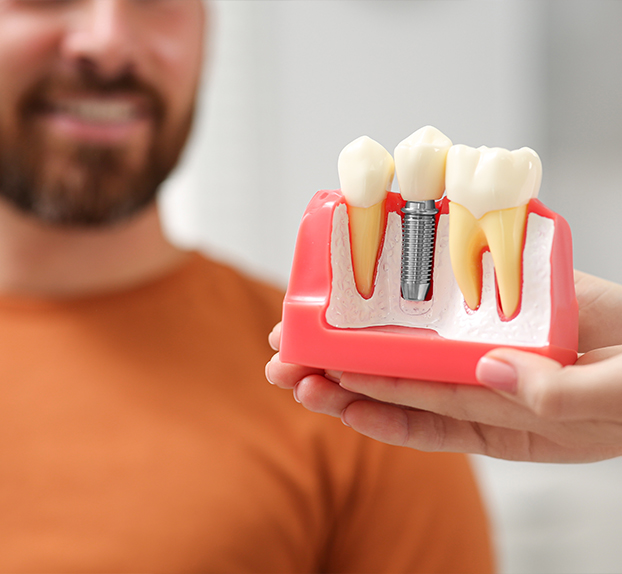Dental implants are an excellent long-term solution for missing teeth.
They are a permanent option for those who want to restore their smile and improve their oral health. Dental implants are surgically implanted into the jawbone, where they fuse with the bone and become a permanent fixture in the mouth. However, caring for dental implants requires a certain level of attention and maintenance to ensure their longevity.

Brush your teeth twice a day
Just like your natural teeth, dental implants require regular brushing. Brush your teeth twice a day with a soft-bristled toothbrush and fluoride toothpaste. Use gentle circular motions to brush around the implant area, taking care not to brush too hard, which can cause damage to the implant or surrounding gum tissue. Make sure to also brush the back of your teeth and tongue to remove any bacteria that can cause tooth decay or gum disease.
Floss daily
Flossing is an essential step in maintaining good oral hygiene. It helps remove food particles and plaque that can accumulate around the implant and gum line. Use a floss threader to gently guide the floss around the implant area, making sure to clean both sides of the implant. Be gentle when flossing around the implant, taking care not to pull too hard, which can cause damage to the implant or surrounding gum tissue.
Use an antibacterial mouthwash
An antibacterial mouthwash can help kill bacteria in your mouth and prevent infection around the implant. Use a non-alcoholic, antibacterial mouthwash recommended by your dentist. Swish the mouthwash around your mouth for 30 seconds, making sure to get around the implant area. Spit out the mouthwash and avoid eating or drinking anything for at least 30 minutes.
Avoid hard or sticky foods
Avoid hard or sticky foods that can damage your dental implants. Hard foods like ice or hard candy can cause the implant to fracture or become loose. Sticky foods like caramel or gum can get stuck around the implant and increase the risk of infection. Instead, choose soft foods like cooked vegetables, eggs, and pasta, and cut your food into small pieces to avoid biting down on hard or crunchy foods.
Visit your dentist regularly
Regular dental check-ups are essential to maintain good oral health and detect any potential problems with your dental implants. Schedule regular check-ups with your dentist every six months to ensure your implants are in good condition. Your dentist will check the implant and surrounding gum tissue for any signs of infection or damage and will recommend any necessary treatment.
Quit Smoking
Smoking can increase the risk of implant failure and can also increase the risk of gum disease. Smoking can also delay the healing process after implant surgery. If you smoke, talk to your dentist about quitting smoking to improve your oral health and the longevity of your dental implants.
In conclusion, caring for dental implants is essential to ensure their longevity and maintain good oral health. Follow these six steps to take care of your dental implants, and don’t hesitate to contact your dentist if you have any concerns or questions. With proper care, dental implants can provide a long-lasting solution for missing teeth, and you can enjoy a healthy, beautiful smile for years to come.
Author:
Dr Fezaan Gatrad
BDS, DiP Implant, MclinDent Implant





Dentistry has come a very long way in the last 50 years. So much so, that almost all treatments undertaken in the…
Read MoreWe hear the words ‘composite bonding’ everywhere these days, but do we know what it is? Composite bonding has become quite a…
Read MoreWisdom teeth! Everyone has either heard about wisdom teeth problems or had their own experience of reoccurring episodes of pain and infections…
Read MoreDental implants are an excellent long-term solution for missing teeth. They are a permanent option for those who want to restore their…
Read MoreRoot-canal therapy is designed to eliminate bacteria from the infected root canal, prevent reinfection of the tooth and save the natural tooth.…
Read MoreAll-On-4 dental implant treatment is a revolutionary solution for individuals facing significant tooth loss or those with deteriorating dental health. This procedure…
Read MoreIntroduction Intra venous sedation (IVS) is a type of conscious sedation widely used in dental and oral surgical procedures. This technique helps…
Read MoreBeing a Senior Practice Manager at a bustling private dental practice is a dynamic and rewarding role that requires a blend of…
Read More
